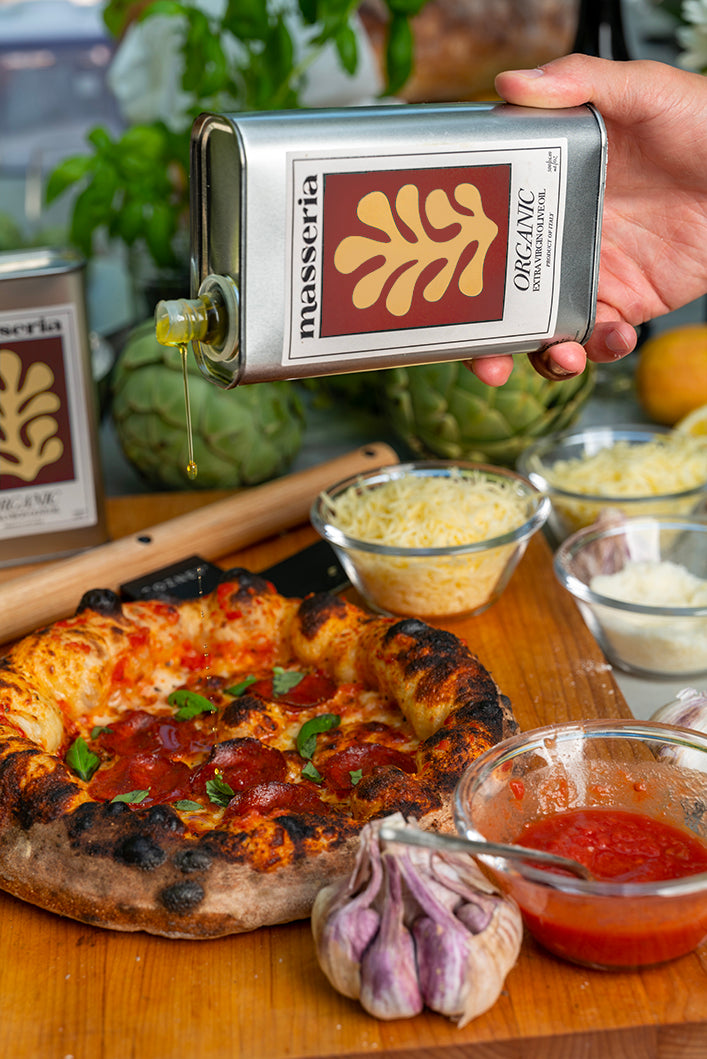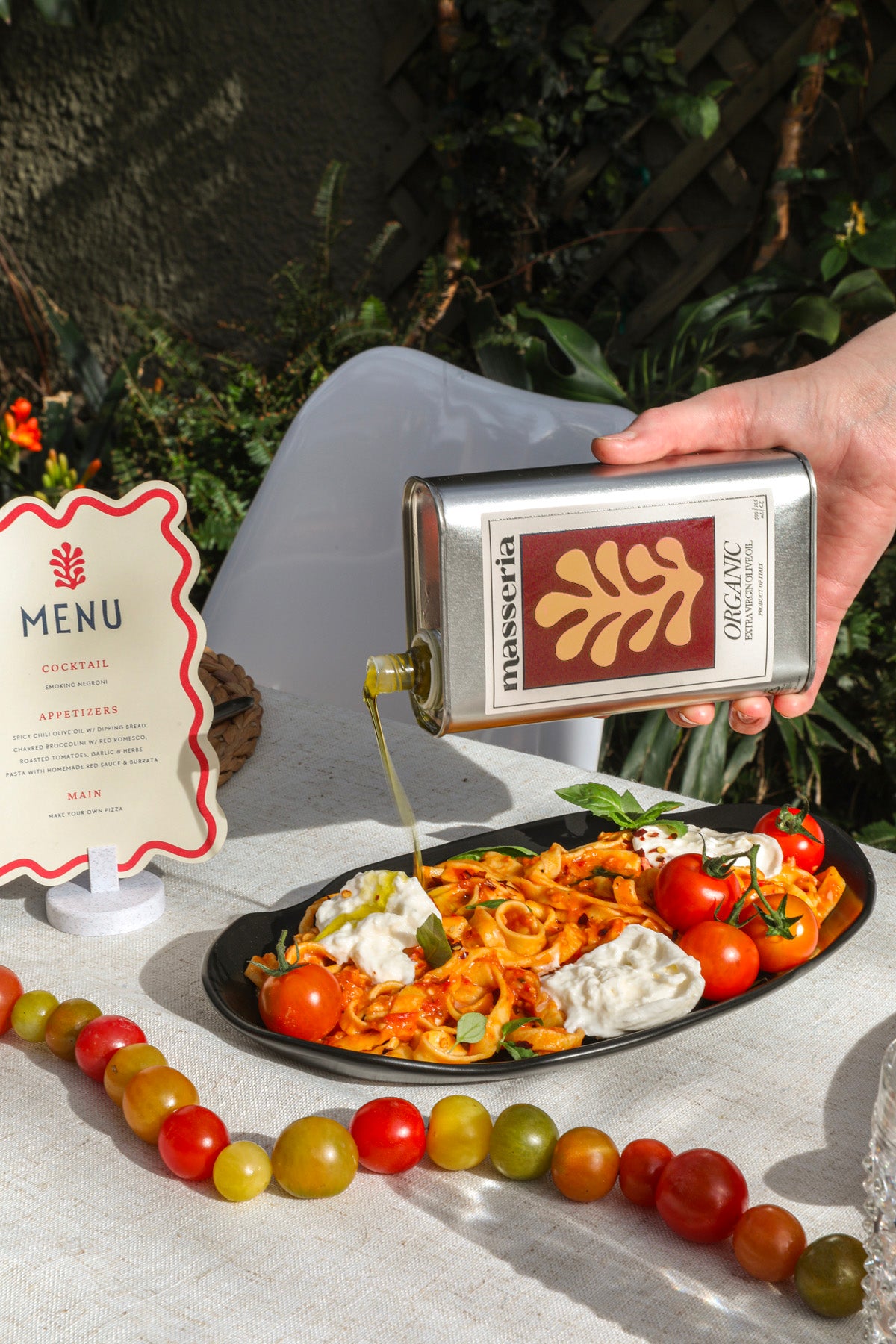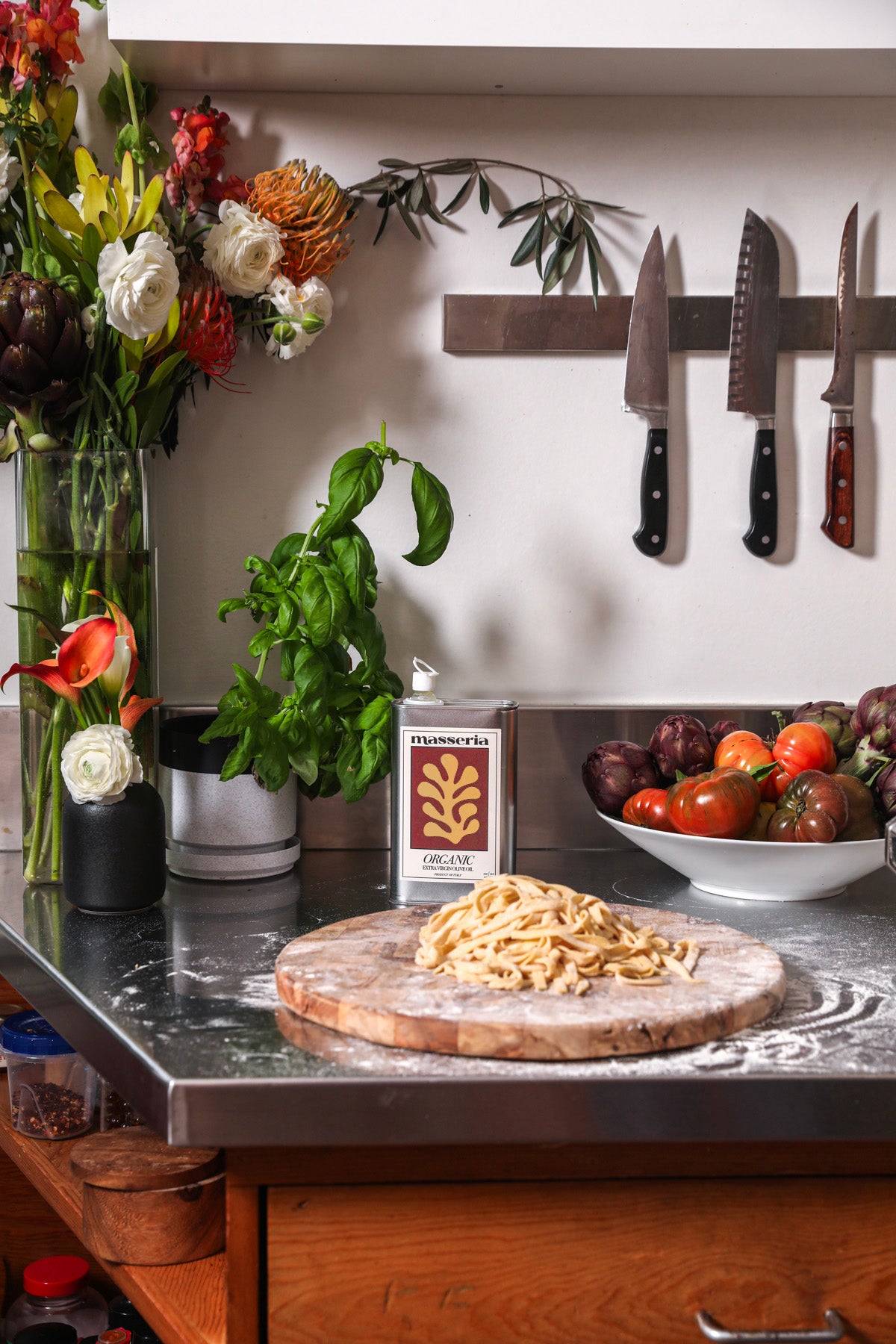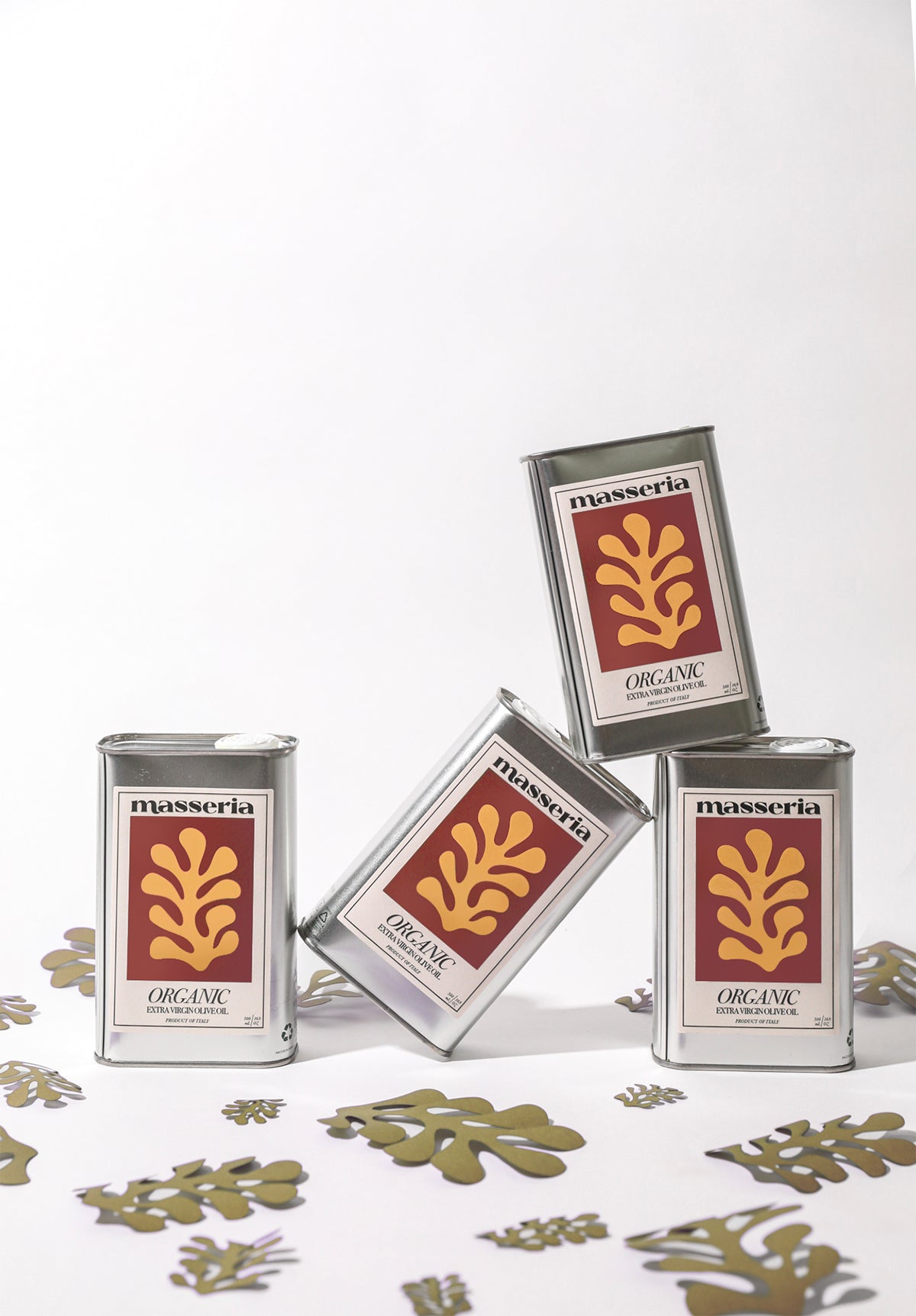Volcanic Roots: How Mount Etna Shapes the Taste of Masseria
Volcanic Roots: How Mount Etna Shapes the Taste of Masseria
There are few places in the world where you can watch a volcano erupt while pressing olive oil. But at Masseria, this is a special event we get to savor.
Every fall, as harvest begins on the slopes of Mount Etna, we are reminded of just how alive the land is. This isn't just a scenic backdrop — it's the soul of our olive oil.
One of my most unforgettable memories from the mill is stepping out after a long night of pressing and looking up to see Etna glowing orange-red against the black Sicilian sky. The eruption lights up the horizon like a slow-motion lightning storm. And on certain days, it rains volcanic ash — soft slate-colored flecks that dust the streets like snowfall. It's surreal, almost otherworldly. And yet for the olive trees, it's nourishment. That ash is one of nature's richest fertilizers, feeding the very roots of our century-old Nocellara Etnea groves.
This is what we mean when we talk about terroir.
What Makes Volcanic Soil So Special?
Volcanic soil is rich in minerals — potassium, magnesium, calcium — the very elements that influence not just the growth of the olive tree, but the flavor of its fruit. Mount Etna's frequent eruptions mean the soil is constantly replenished, renewed by the deep earth.
The mineral profile of Mount Etna's soil is uniquely complex, containing over 20 trace minerals rarely found in such concentration elsewhere. This includes selenium, zinc, and iron, which the olive trees absorb and incorporate into their fruit. When you taste that distinctive mineral complexity in Masseria—that almost electric quality that dances on your palate—you're experiencing the direct translation of Etna's volcanic soil into flavor.
Our groves are located on the slope of the volcano, where a rare balance of elevation, climate, and mineral density gives our olives their unmistakable character. You'll taste it in every tin: vibrant notes of green tomato, grassy brightness, a touch of citrus, and that unmistakable peppery finish — a flavor that could only come from this land.
Studies have shown that olives grown in volcanic soil typically contain significantly higher levels of polyphenols—those powerful antioxidant compounds that give Masseria its characteristic peppery finish. This isn't just about flavor; these compounds are directly linked to olive oil's remarkable health benefits, from reducing inflammation to supporting heart health. The challenging growing conditions on Etna's slopes actually stimulate our trees to produce more of these beneficial compounds as a natural defense mechanism.
Unlike blended oils made from olives sourced across regions or countries, Masseria is 100% USDA certified organic, single-origin and mono-cultivar. That means every olive in every tin comes from the same groves, grown in the same volcanic soil, nurtured under the same Mediterranean sun. It's what allows us to preserve the integrity and authenticity of this incredibly special place.
Harvest on the Volcano
Harvest time on Etna is nothing short of electric. The groves come alive — the early morning buzz of cicadas, the quiet rustle of branches, the soft "plop" of olives falling into crates. Trucks filled with fresh olives wind their way down narrow mountain roads to the mills. The pace is quick, but there's joy in it — a sense of collective rhythm, of purpose.
Everything happens fast because freshness is everything. Within hours of picking, the olives are cold-pressed at our mill just down the road. The goal is to capture that moment — the height of ripeness, the brightness of the grove, the mineral complexity of the soil — and preserve it in every tin.
Paradoxically, the volcanic terrain creates a beneficial stress environment for our olive trees. Their roots must work harder, reaching deeper into the soil to access water and nutrients. This struggle produces olives with more concentrated flavors and higher nutrient density. It's nature's way of turning adversity into excellence—the very definition of resilience transformed into flavor.
Mount Etna also creates its own microclimate, with dramatic temperature variations between day and night that are ideal for olive development. This natural temperature regulation, combined with the perfect drainage of volcanic soil, reduces disease pressure and allows us to maintain our commitment to organic farming without compromise. The result is an olive that develops slowly and completely, reaching a balanced maturity that's reflected in Masseria's harmonious flavor profile.
Why It Matters
It's not every day you can say your olive oil was born on the side of an active volcano. We believe that when nature offers you something this rare, you honor it with care, transparency, and craftsmanship. Our volcanic terroir is a gift. It's what makes the Nocellara Etnea olive unlike any other — and what makes Masseria a flavor experience that simply can't be replicated anywhere else on earth.
So next time you drizzle Masseria over a salad, or take a spoonful straight from the tin (yes, really), remember: this isn't just olive oil. It's a sensory postcard from Mount Etna — bold, alive, and unforgettable.





